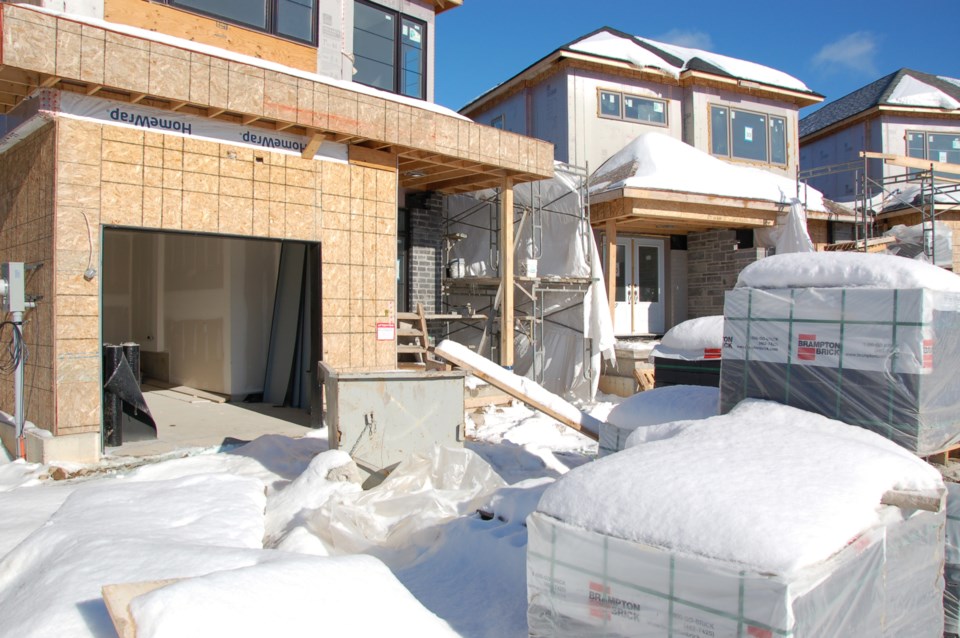During last month’s budget meeting, councillor Mark MacKinnon noted that Guelph is becoming a town of haves and have-nots. The middle class is evaporating because it’s getting so expense to buy a house in Guelph, and, let’s face it, with the average home price now more than $1 million, he’s not wrong.
I was thinking about this while watching Monday’s meeting about the Shaping Guelph: Growth Management Strategy and Land Needs Assessment. It was interesting to see a debate about a city-wide plan for growth focus much of its four-hour running time on one small area south of Clair Road that, even in the best market conditions, the vast majority of Guelph couldn’t afford to live in.
There’s a quote I once heard, but I couldn’t find, that says something like 'don’t spend your life looking around at your neighbours being envious about all that they have and you don’t.' Having said that, it was hard to hear people who own big homes on big lots argue either for or against even a minimum amount of redevelopment in their area to make more housing for other people in Guelph.
It was also hard to hear another delegate talk about not wanting to live his life “in a shoebox” and being denied the “Canadian Dream” of a single-detached family home with all the fixings. Funny how many of the solutions presented for homelessness – whether it’s tiny homes, garden suites, or basement apartments – fit that definition of a housing “shoebox.”
This is the essential problem of how we’ve looked at housing issues thus far: If you can afford to play in the market, you can play. If you can’t, you will take what you’re given, and you should be damn thankful for it. That’s assuming, of course, these projects don’t hit a NIMBY wall and die.
And don’t get me started about the representative from the Guelph & District Home Builders Association who seemed to think the solution to housing was for Guelph to bust out beyond its borders. Forgetting the fact that municipalities aren’t allowed to grow beyond their borders outside of very rare and specific circumstances, I think the days of, “We claim this land for the King of Spain,” are over.
Less that 48 hours after this meeting, the Government of Ontario held a virtual housing conference with municipal leaders, and out of that was the announcement of $45 million to help cities streamline development and other money to review staffing and procedures to create more consistency with planning processes across the province.
I feel better housed already.
Look, the housing issues affecting Ontario are not going to be solved in a day, or a few days, but we really need to peel away all planning rules, funding problems, and the limitations of space to first answer one very essential question: Is housing a human right?
If housing is a human right, then the current system is the economic equivalent of a famine, or other sort of human-made disaster. We have the resources to solve housing, and we know well what the challenges and limitations are, but getting to a society where people are no longer homeless, or under-housed, or underwater on their mortgage, means giving up a lot of assumptions.
First, we need public housing. Either that, or developers are going to have to decide to stop liking money. Everyone needs a home, but not everyone can play in the open market, and right now, that’s the only market in town. You know why the only house for sale is the one that costs $1 million on average? Because no one else is offering that same house for $500,000.
We also have to end a system where people can buy houses like junk bonds. Buying a house should not be a “great investment," and there should be rules that make it illegal to buy a property unless it’s your express intent to live there or rent it to others so that they can live there. I’m sure there can be some carve out for vacation homes, but you’re unlikely to buy a condo in the downtown core for vacations.
We also need to get comfortable with the idea that not everyone can live in a single detached family home with a big yard, at least if you want to live in southern Ontario. Yes, Canada is a big country with a lot of open space, but the vast majority of Ontario’s 14 million population want to live along the shorelines of Lakes Ontario and Erie.
You want to build on a 2.5-acre plot? There’s still a lot of empty space in Shining Tree, Ontario, which is a two-hour drive north of Sudbury, so you can always move there.
But if you want to live in Guelph, you’re going to have to learn to share, and not just for the ones who are coming, but for the ones who are already here. Everyday, there are hundreds of people who contribute to the fabric of Guelph life but can’t afford live here, and they have no hope that’s changing anytime soon.
Call me crazy, but everyone should have a home, but do we have the guts to do what it takes and make it happen? We’ll see.
